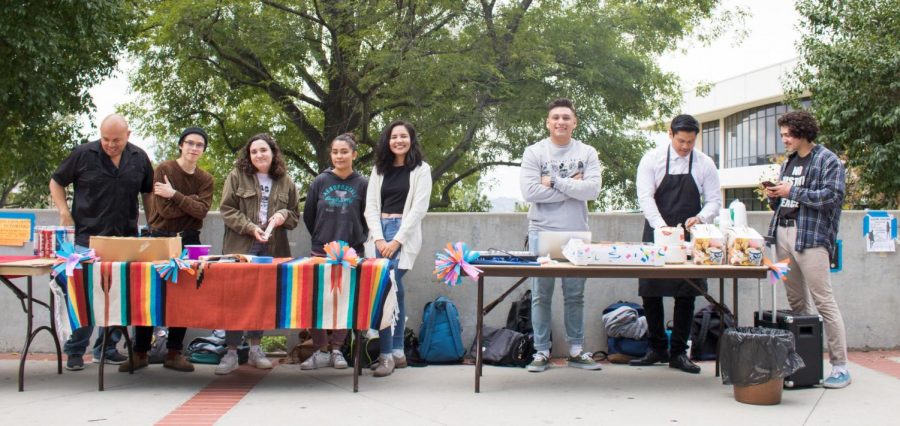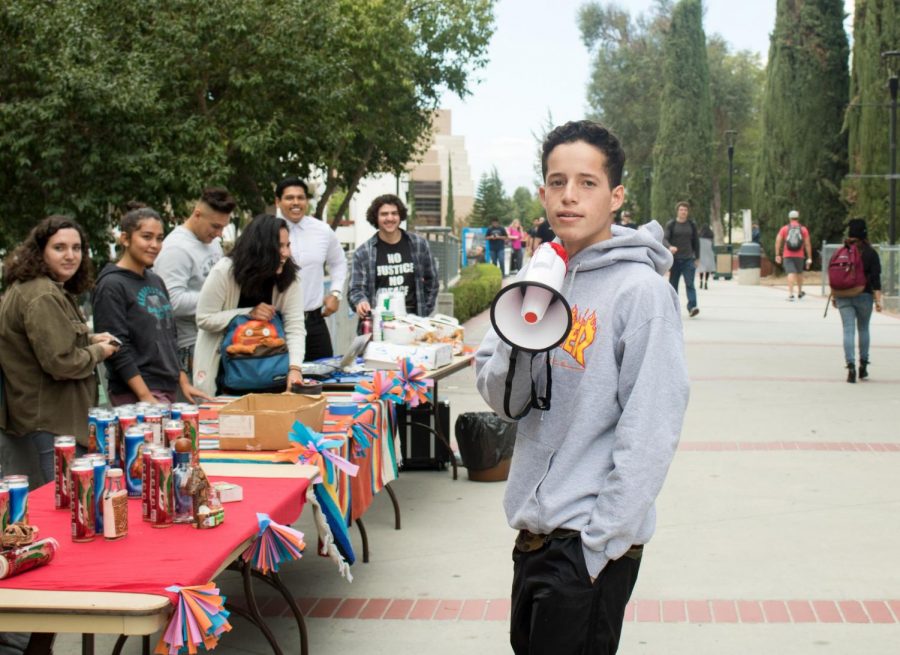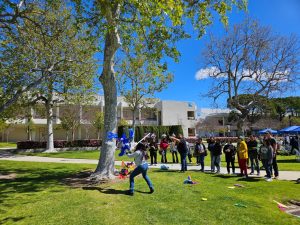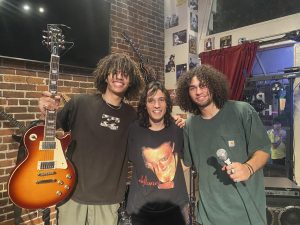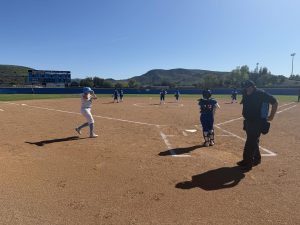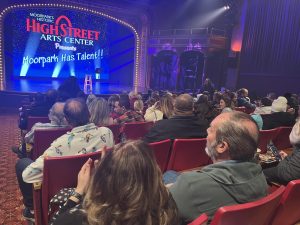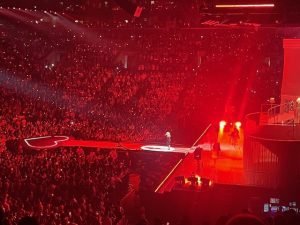New club commemorates Day of the Dead, promotes activism.
Nick Salazar, 18, Business major uses a megaphone to draw people toward his club’s Day of the Dead event. La Raza club offered pan de muerto, or bread of the dead, and champurado, or Mexican hot chocolate. Photo credit: Martin Bilbao
November 7, 2017
An enthusiastic student with a megaphone called on passersby to buy some pan de muertos, as Mexican music mingled with the aroma of champurado. It was the day before Dia de Los Muertos, but a new club on campus was already celebrating on Raider Walk.
La Raza club raised money for Puerto Rico hurricane relief and commemorated the Day of the Dead by selling Mexican food on Nov. 1.
The club was created to raise awareness for Latinx issues, promote activism, and create a campus community for Latinx students, according to club president Sam Flores, 20, Political Science major.
“I just think Latinos need more representation in our community,” said Flores. “Our culture needs to be expanded and talked about more, especially with Trump and the whole administration… I think it’s dangerous for [Latinx communities] in this time and age. We just kinda have to learn how to organize and protect our communities as Latinos.”
Club members lined up tables on Raider Walk where they sold bread called pan de muertos and champurado, or Mexican hot chocolate. Face painting was also offered for a small fee. Proceeds from the event will be donated to help hurricane relief in Puerto Rico. For students passing by, the event offered an opportunity to experience a taste of Latinx culture and learn about a new, inclusive club on campus.
“We tell everyone we are an activist club,” said club treasurer Rudy Correa, 20, Spanish major. “We want to help the community out there, not only Latino culture. It’s not about one race. It’s about every race out there.”
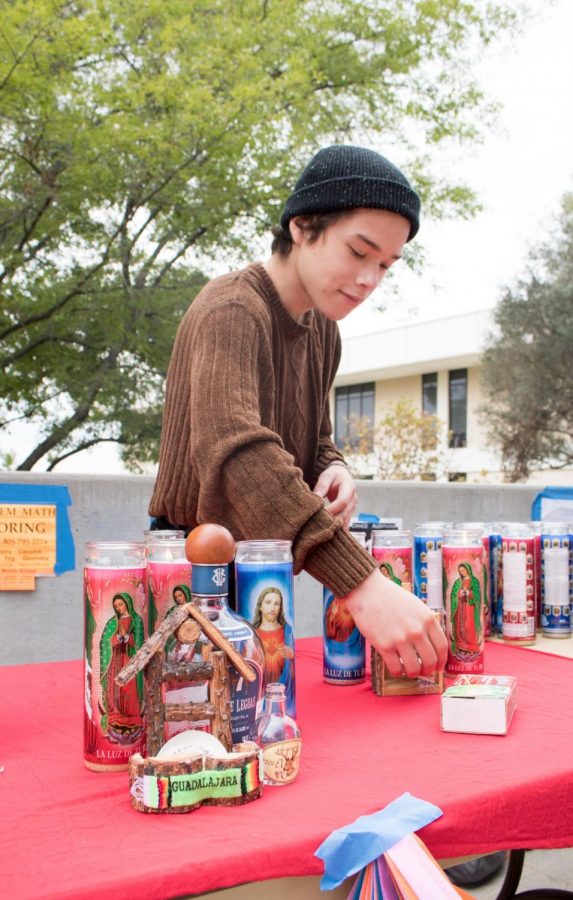
A small altar lined one of the tables, where students could light the candles for free. Next to the altar, some members offered face painting, another operated the music, and others served food.
“I have this [food] all the time at my house, so it’s very cool to have it here on the campus,” said passerby Anthony Portillo, 18, Biology major. “It makes me feel included.”
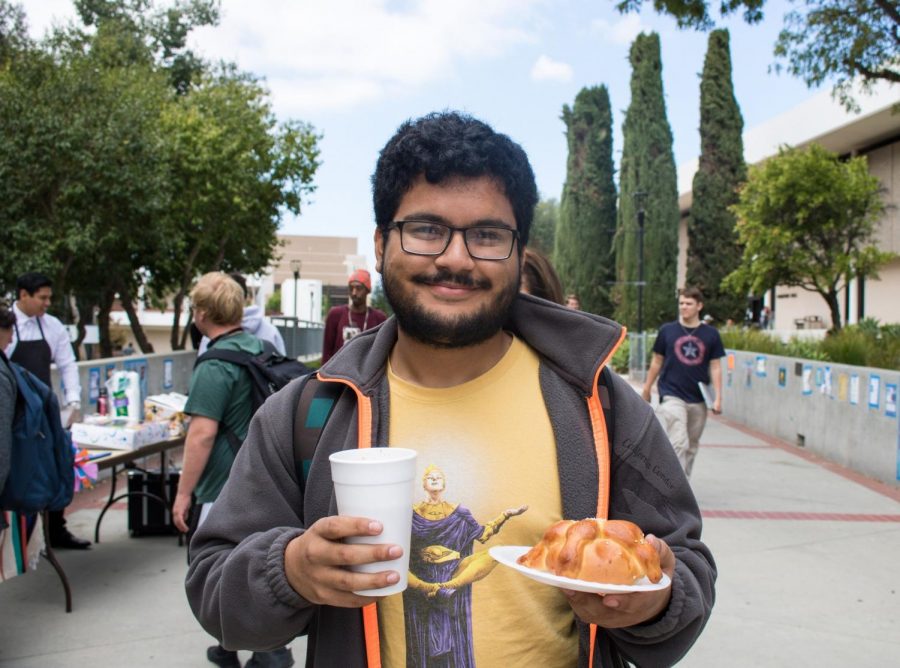
While many in attendance appreciated the food, other passersby like Jasmine Campos, 18, Biology major and her friends also appreciated the humanitarian aspect of the event.
“It’s nice,” said Campos. “It’s an easy way to give back. We should have more of these with more variety. I like the bread.”
The club began this past September under the leadership of Flores. The club is being advised by history professor Jamie Soto who was also in attendance. Many of the founding members came from the History of Mexican Americans course taught by Soto this fall.
“We have a very diverse campus,” said Soto. “No matter what they say. There is a lot of diversity from all over the world and a lot of different cultures. We have a fairly large population of Mexican American students that have knowledge of their roots and in particularly in things that are very important culturally like the Day of the Dead.”
According to Soto, the holiday is meant to commemorate loved ones that have passed away. Many decorate altars with flowers and feast on celebratory food like pan de muertos. For Soto, the holiday represents a unique duality of Latinx culture.
“There is always a fear of death all the time, especially as many Mexicans and Latinos are Roman Catholic, yet at the same time we kinda dance with death,” said Soto. “It’s acknowledgement that it’s the eternal ending that we are all going to ultimately.. We are not immortal. We got to face our own mortality.”
Though the club places a heavy emphasis on Mexican American culture and issues, club members stress that their concerns encompass all of Latin America and beyond. Valerie Quiroga, 18, Biology major, has family from Bolivia and is invested in the club and its mission.
“You don’t really have to be Mexican to join the club,” said Quiroga. “Anyone can join. It’s really a celebration of culture and we are here to give back to the community.”
The club is promoting activism and developing projects to help the community. For Quiroga that includes supporting Dreamers, immigrants who came here as childhood arrivals and lack legal status. These immigrants may have lived here their whole lives yet may soon face deportation after President Trump issued an administrative action to cancel the Deferred Action for Childhood Arrivals program (DACA) on Sept. 5.
“I have family who are a part of the Dreamers,” said Quiroga. “Two weeks ago we went to the Dreamers protest in Los Angeles and we are trying to go to more of them. So we are trying to organize.”
Serving Latinx communities like the Dreamers and those in the surrounding agricultural communities is the kind of activism Flores envisioned when he began his club.
“If you want to learn how to organize, get into politics possibly, contribute to your community, learn how to help people who are disadvantaged this is the right club for [you],” said Flores. “It doesn’t matter what race or belief they have, we are just trying to get people to use their voice for people who are not necessarily able to use their voice.”
